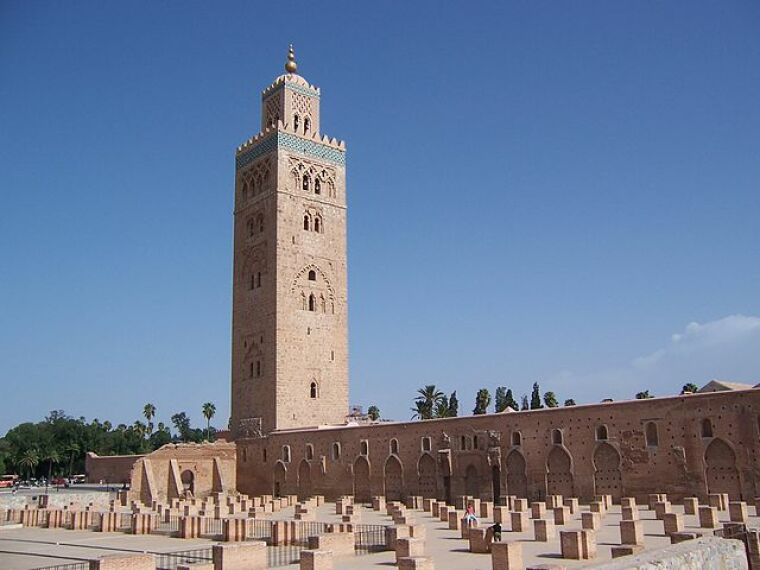Religious committee in Morocco says apostasy is no longer punishable by death

Morocco's High Religious Committee has reversed its Islamic ruling that imposes the death penalty on those who decide to leave Islam.
In 2012, the High Religious Committee in charge of issuing Fatwas or Islamic rulings has published a book stating its position that apostasy should be punishable by death. However, the same committee has recently issued a document titled "The Way of the Scholars," in which it reversed its position on killing Muslims who change their religion.
The committee argued that apostasy should not be regarded as a religious issue but as a political stand that is more consistent with "high treason," Morocco World News reported.
"The most accurate understanding, and the most consistent with the Islamic legislation and the practical way of the Prophet, peace be upon him, is that the killing of the apostate is meant for the traitor of the group, the one disclosing secrets, [...] the equivalent of treason in international law," the statement from the committee read.
The reasons cited by the committee for the change in its position echoed the teachings of Sufyan al-Thawri, an Islamic scholar during the first century AH (622 – 719 A.D.).
Al-Thawri reviewed the historical situations when the Islamic prophet Mohammed ordered the killings of apostates, as opposed to the times when he did not. He concluded that Mohammed's decisions were made for political purposes and not based on religion.
The document pointed out that during the Treaty of Hudaybiyyah, Mohammed himself observed the provisions stating that those who converted to Islam and renounced it later must be allowed to return to Quraich, the most powerful enemy of Muslim nations at the time.
The committee further noted that the Quran only mentions apostasy and its punishments in the afterlife but not in the present life.
One of the examples cited by the committee was Chapter 2 verse 217 which stated: "And whoever of you reverts from his religion [to disbelief] and dies while he is a disbeliever – for those, their deeds have become worthless in this world and the Hereafter, and those are the companions of the Fire, they will abide therein eternally."
In July 2015, Mustapha Ramid, Minister of Justice and Liberties, stated that there is no law in Morocco that punishes apostasy. He said that citizens are free to choose their religion and argued that the law only prohibits proselytizing.
According to a separate report from Morocco World News, the country's penal code does not explicitly prohibit apostasy, but "the law punishes anyone who tries to shake the faith of a Muslim and take advantage of social status (especially those of the poor) or age to convince them to reject Islam."
 Christians don't have to affirm transgenderism, but they can’t express that view at work: tribunal
Christians don't have to affirm transgenderism, but they can’t express that view at work: tribunal Archaeology discovery: Medieval Christian prayer beads found on Holy Island
Archaeology discovery: Medieval Christian prayer beads found on Holy Island Presbyterian Church in America votes to leave National Association of Evangelicals
Presbyterian Church in America votes to leave National Association of Evangelicals Over 50 killed in 'vile and satanic' attack at Nigerian church on Pentecost Sunday
Over 50 killed in 'vile and satanic' attack at Nigerian church on Pentecost Sunday Ukrainian Orthodox Church severs ties with Moscow over Patriarch Kirill's support for Putin's war
Ukrainian Orthodox Church severs ties with Moscow over Patriarch Kirill's support for Putin's war Islamic State kills 20 Nigerian Christians as revenge for US airstrike
Islamic State kills 20 Nigerian Christians as revenge for US airstrike Man who served 33 years in prison for murder leads inmates to Christ
Man who served 33 years in prison for murder leads inmates to Christ


 Nigerian student beaten to death, body burned over ‘blasphemous’ WhatsApp message
Nigerian student beaten to death, body burned over ‘blasphemous’ WhatsApp message 'A new low': World reacts after Hong Kong arrests 90-year-old Cardinal Joseph Zen
'A new low': World reacts after Hong Kong arrests 90-year-old Cardinal Joseph Zen Iran sentences Christian man to 10 years in prison for hosting house church worship gathering
Iran sentences Christian man to 10 years in prison for hosting house church worship gathering French Guyana: Pastor shot dead, church set on fire after meeting delegation of Evangelicals
French Guyana: Pastor shot dead, church set on fire after meeting delegation of Evangelicals ‘Talking Jesus’ report finds only 6% of UK adults identify as practicing Christians
‘Talking Jesus’ report finds only 6% of UK adults identify as practicing Christians Mission Eurasia ministry center blown up in Ukraine, hundreds of Bibles destroyed: 'God will provide'
Mission Eurasia ministry center blown up in Ukraine, hundreds of Bibles destroyed: 'God will provide' Church holds service for first time after ISIS desecrated it 8 years ago
Church holds service for first time after ISIS desecrated it 8 years ago Burger King apologizes for 'offensive campaign' using Jesus' words at the Last Supper
Burger King apologizes for 'offensive campaign' using Jesus' words at the Last Supper Uganda: Muslims abduct teacher, burn him inside mosque for praying in Christ’s name
Uganda: Muslims abduct teacher, burn him inside mosque for praying in Christ’s name